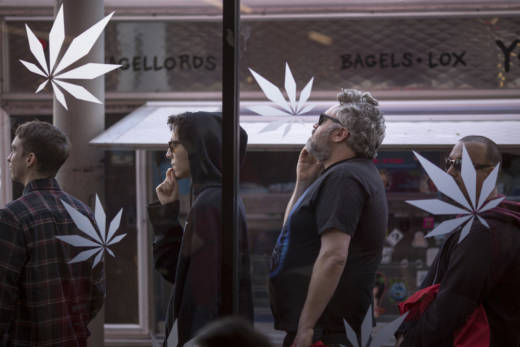When California legalized recreational marijuana sales in January, a bonanza in tax revenue was expected. But so far that hasn't materialized — and ironically, some say revenue has been low precisely because taxes have been too high.
Governor Jerry Brown released a revised state budget on Friday. It shows California's economic recovery delivering an $8.8 billion surplus, beating forecasts from earlier this year.
But the picture wasn't so rosy for the state's new recreational marijuana industry. During the first quarter of 2018, the state collected only $33.6 million from its 15 percent tax on marijuana sales.
California Department of Finance director Michael Cohen said at a Friday morning press conference that revenues have been lower than expected. But, he said, "We are expecting that to turn over time and ramp up as more people get licensed and as more people get into the system."
Legal pot sales will have to increase sharply to meet the state's revenue projections of $185 million during the first six months of legalization, and $630 million in the following fiscal year. A report from the independent Legislative Analyst's Office earlier this week said the state might not even be able to keep up with an earlier, more conservative projection.

